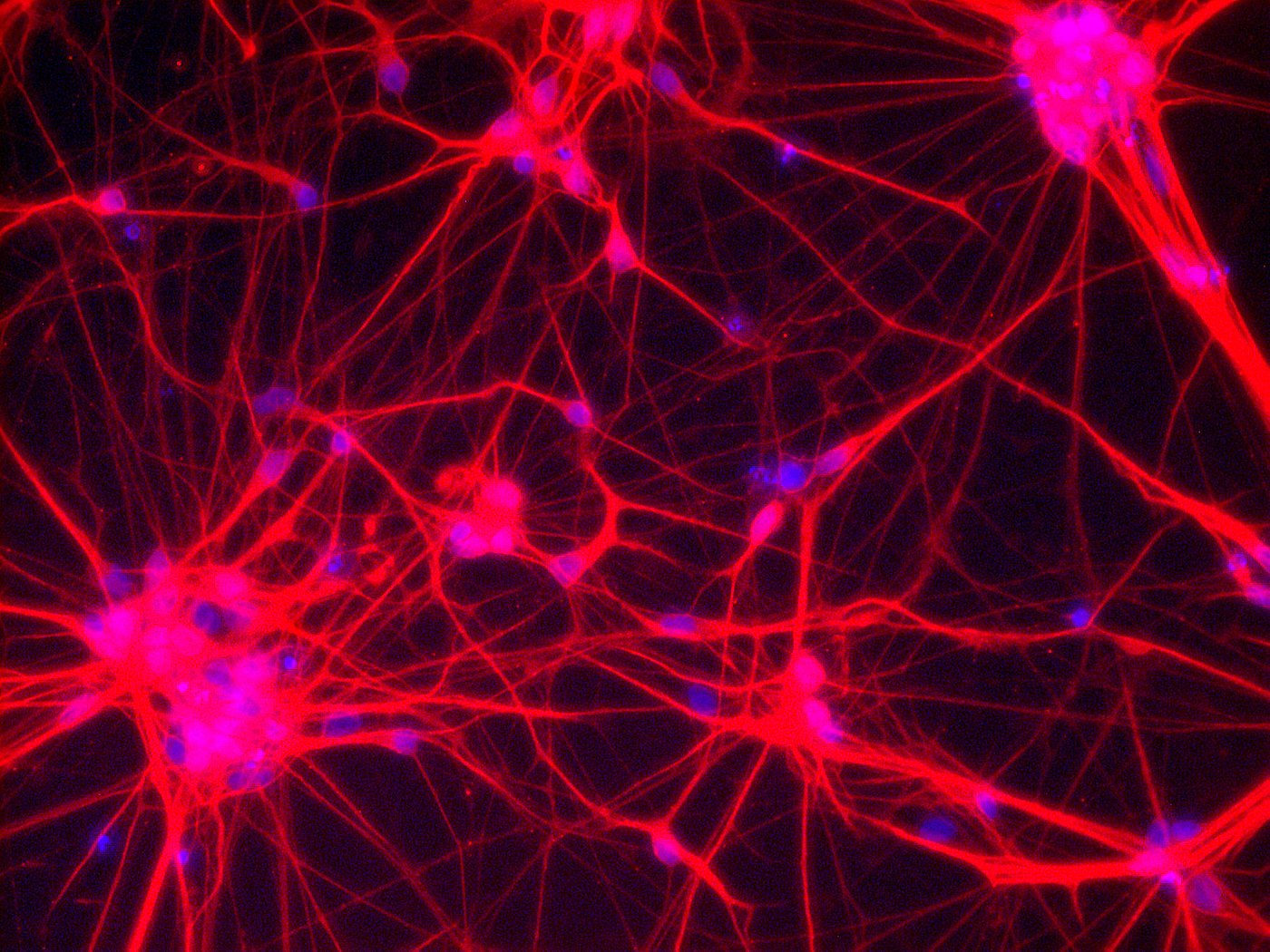
Neurons – Network of neuronal cells (Blue: nucleus; Red: neurons) [Copyright: Institute for Transfusion Medicine, UK Essen]
A frequently expressed need in ELSA sciences is a closer exchange with biomedical disciplines on current developments in biomedical research and the resulting ELSA-specific issues. The first ELSA symposium on questions of stem cell ethics offered 17 young scientists from the fields of law, sociology as well as philosophy the opportunity not only to present and sharpen their own research projects in connection with stem cell research and genome editing in front of an interdisciplinary audience, but also to gain in-depth insights into questions of other research areas in each case. This event is intended to establish a regular format for exchange between ELSA sub-disciplines and to include the biomedical perspective as well.
After a biomedical presentation by Jay Gopalakrishnan on research on brain organoids to understand brain development as well as the invasive behavior of certain types of tumors, legal scholar Pedro Henrique D. Batista brought the question of patentability of CRISPR-related inventions in the medical field to the forefront of the considerations. Timo Faltus then discussed the fundamental question of entanglements of patent and pharmaceutical law for the use of germline therapy. The starting point of Anja Pichl's contribution was the consideration that widespread demands for "more ethics" in (bio-)scientific practice require a "practice turn" on the part of bioethics, but that approaches to this discussed so far cannot withstand a critical analysis. While Julia Mirkin addressed the question of the trustworthiness and moral integrity of researchers in her lecture, Alexander Christian – also from the perspective of science ethics – first addressed previous problems in the context of science communication (such as complexity reduction and sensationalism) and finally possible prerequisites for responsible science communication about stem cell research. Finally, Clemens Heyder highlighted in his lecture practical questions of the design of clinical trials on promising but risky experimental therapies with embryonic and induced pluripotent stem cells.
The symposium, which was organized and conducted by Alina Omerbasic-Schiliro and Vasilija Rolfes, concluded with a discussion amongst all participants on the continuation of the event and perspectives for future cooperation. All participants expressed their willingness to intensify the interdisciplinary exchange within the framework of ELSA. In addition, the direct exchange with researchers from the life sciences is to be intensified.